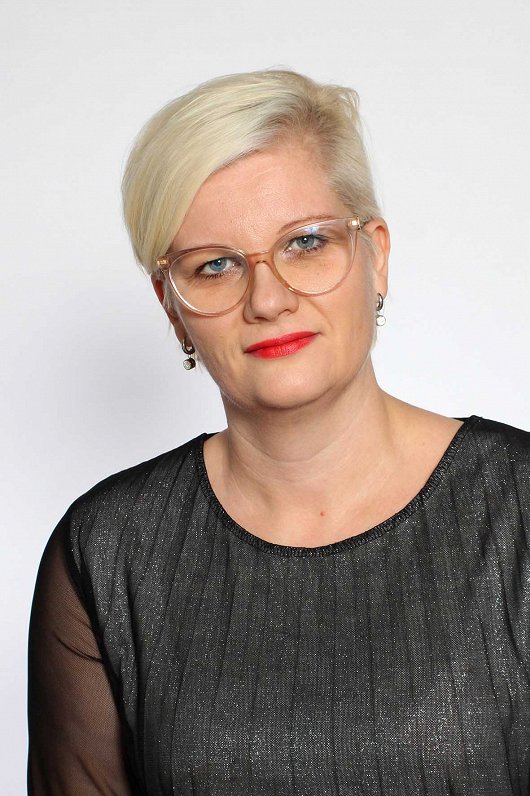Why is it essential to prioritize digitalization in healthcare?
To clarify the question of “why?”, we should first consider the developments in terms of patient management. We do not see any adult person as a passive agent. On the contrary, we expect people to take an active role in their health management. Therefore, the shift from paternalism to patient-centeredness (in some contexts also in person-centeredness) has taken place in healthcare. Yet, active involvement of patients requires that multi-layered two-way communication is enabled, meaning that not only one physician “supervises” one patient but the patient has to understand and reflect back.

In addition, also physician-physician communication via (e-)consultations and physician-other specialist communications should take place to allow quicker information exchange and potentially quicker time to diagnose, changes in treatment regimens and other supportive activities that would enable full(er) implementation of self-management and higher level of individual responsibility in health(care).
To see an example from our neighboring country Estonia, the system of e-consultations has been in place for years and this has fastened the communication between primary and specialty care physicians as a general practitioner (GP) may turn to any specialty care physician needed and consult on diagnosis, treatment etc.
The opportunity is especially relevant outside the two main urban centers, Tallinn and Tartu, as it allows consultation with a high level specialist, saves time for the patient, and enables quicker processes which finally may result in better health outcomes, so together with clinical improvements, also patient-centeredness is implemented. Thus, the necessity of digitalization in healthcare comes from the potential to support healthcare processes and goals related to patient-centricity, although there is a need to also consider the supporters and barriers we face in this journey.
To be more concrete and expand this issue in terms of specific Latvian context, we need to look at healthcare policy development in Latvia. At the end of summer 2023, the Digital Health strategy was approved and it is already a huge step towards development of the sustainable health ecosystem. As a strategic document in general, the strategy covers a wide range of issues related to the implementation of digitalization in healthcare. Meanwhile the Ministry of Health (MoH) reported that the planned amount of funding for the industry in 2024 will be significantly higher than this year.
The health sector is one of the government's priorities, for which an additional 275 million EUR is planned to be allocated in the 2024 budget. Funding is planned to be directed for improving the availability and quality of healthcare services, remuneration of medical personnel, reimbursable medications, the field of oncology, improving the health of mothers and children, mental health measures.
This means that it is very important to have a transparent and sustainable digital health ecosystem that will satisfy all involved parties – patients and the healthcare sector. The strategy is like a guiding light that helps prioritize what's the most important and where the budget shall be allocated.
What does digitalization in healthcare actually mean?
Often, when digitalization or digital health is discussed, the distinction between health and digital health is drawn. But is it so? Or could we see aspects of digital health or digitalization as an additional layer and angle of health and healthcare as such? We prefer the latter – digital health/digital solutions or digitalization are not separate and individual matters but an integral part of health and healthcare and its management. The reason is in a holistic health(care) approach where in order to make any medical or health-related decisions, different aspects and options are considered.
Lately reports on the sporadic nature of oncological data have been in focus and this also illustrates the relevance of technical-analytical approach in building up the digital health ecosystem in Latvia. What it means to citizens is that the patient pathways are fragmented and not supporting the movement of the patient within the healthcare system.

To make it more concrete, let’s take an example of a post-stroke patient. While immediately after the stroke, a patient is treated and monitored in the hospital setting, when the patient is discharged and goes home, there is basically no support. If families are aware of the care guaranteed by the state, then they can make phone calls to rehabilitation centers and clinics to enter the queue. And the waiting time to the rehabilitation center is up to 6 months.
Knowing that most recovery can be done immediately after the stroke event, the lack of support and long waiting times are absolutely crazy. It's even crazier to find out that there is a solution on the market that can 1) provide care for patients immediately after the discharge, 2) establish a secure information exchange (health data and telemedicine link) between the patient and treating specialists, 3) empower the patient and the family to learn about their illness and manage it. Digital solutions like Latvian-owned Vigo Health claim that they can do all of these things. Unfortunately, health financing policy currently doesn't allow for such innovations to enter the system.
Recently the State Audit Office of the Republic of Latvia concluded that the measures implemented by the MoH do not ensure early detection of oncological diseases and reimbursement of medicines needed by patients. This has a significant impact on Latvia's public health indicators, which are not improving in the long term, despite this area of healthcare being one of the country's priorities.
The State Audit report is a great opportunity to see hurdles and build an Oncology registry based on real world needs, including the Digital Health ecosystem, that can give clear understanding to decision makers, if solutions which now are available to patients, for example, medicines, diagnostic tools etc. are working. The Digital Health ecosystem should be developed in a way that specialists and decision makers would be aware of issues and could design new tactics for better health outcomes for our people in Latvia.
How to begin the digital strategy implementation?
Innovation needs financial resources, simply speaking – and the document nicely outlines the plans for funding. Other parts of the implementation remain vague, raising concerns that if finances are in place and the ecosystem is built then how to secure the implementation on a user level in practice? This question may seem relatively easy and secondary but has actually a multi-layered nature as we are talking about change management.
If you imagine yourself thinking that you should lose 5 kg and know that you should do more exercise and eat fewer sweets, it may already be challenging. Maybe not the first part as you are enthusiastic and what to achieve the result. But after losing 3 kg or even all 5, the challenge is to keep a new way of acting alive and maintain or improve your results. The same is with the digital health ecosystem – the Digital Health strategy per se is not enough.
There should be a competent strategy “driver”. The driver must be persistent since there are several stakeholders involved and also systems (as there is a need to contribute not only to the healthcare system but equally to the educational system by raising digital competencies and health-related knowledge, awareness and behaviors). Ownership is the actual challenge of this change management process. So, a strategic approach should tackle all the actual and potential bottlenecks. And of course, first data in standardized, digitized and a (cyber) secure format is needed. But if other aspects remain unnoticed, the failure of this implementation is still likely.

Therefore, we are looking forward to the new Minister of Health revitalizing the idea of a competence center or other type of accountable organization that will drive the health sector digitalization and change management.
For whom?
Latvia, like all Western welfare countries, is an aging society. And that means not only an increase in the number of patients but also a decrease in healthcare professionals, which is already an issue. And that means that in order to keep the healthcare system functioning, there is a need that people – no matter if as healthcare professionals, patients or carers – would be equipped with tools as well as skills, knowledge and a favorable attitude.
We already know that in some medical specialties, for instance in rehabilitation, digital tools, such as remote monitoring devices, digital therapy and telemedicine platforms can help specialists care for 10 times more patients than in standard face-to-face setting, but such services are yet to be embraced by the health system and the conservative professional community. However, lately there has been an improvement in adaptation of those digital innovations that save time and/or can generate more income for the healthcare specialists and institutions. Coming to pure skills and knowledge, it is also important to note that paradoxically, implementation of digital health may increase inequity.
For example WHO’s scoping review outlines already known facts that lower education and incomes as well as an older age, being a member of an ethno-linguistic minority and living in rural areas may increase inequity as the capability to adopt digital health tools may worsen in people with those socio-demographic variables.
It is important to note that these potential differentiators are not only applicable to patients but may also affect healthcare professionals. This means that the challenge of implementation of the digital health ecosystem is really huge, multi-layered and needs the involvement of different specialists. Which thereby makes it additionally more complex. So, in order to develop a functioning digital health ecosystem in Latvia, a strong leadership to drive this complex change is needed. However, addressing all of that contributes back to several other aspects outlined in this article previously – either it is the data quality, access to healthcare, improved patient pathways and empowered patients who can take a more active role of their life in managing it with the illness.
We would like to stress that a healthy society starts with healthy habits from a very personal level to a political and societal level. You personally can experience how much it is possible to benefit from Digital Health if you receive timely and personalized treatment when it is needed. To make it happen all involved parties should be ready for lifelong learning not only in primary professions but also sharpening digital competencies. As is mentioned in the DigComp framework: it is not enough to work on people skills and knowledge but increased digital competence also needs to make a contribution to raise positive attitudes.
Authors:
Kadi Lubi is the Policy & Public Affairs Senior Manager Baltic at Pfizer and a member of AmCham and DHCL Digital Health strategy workgroup. She has obtained master degrees in pharmacy and communication management as well as PhD in media and communication with the focus on health communication. She has experience in pharmaceutical industry as well as from academia as a researcher and program director for Digital Health Master’s program.
Kristaps Krafte is Founder and CEO of Vigo Health, deputy chairman of the board of the “Digital Health Cluster Latvia” (DHCL), co-chair in AmCham and DHCL Digital Health strategy workgroup.
Ieva Dzirkale is Digital Strategy lead in Roche Latvia, and co-chair of AmCham and DHCL Digital Health strategy workgroup.






























